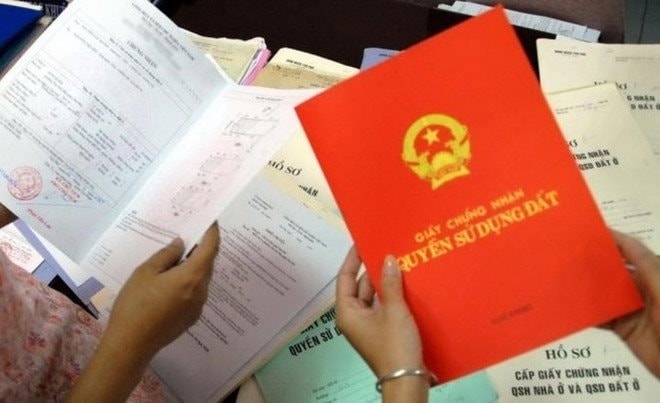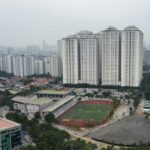
According to Article 139 of the 2024 Land Law, individuals who violate land use regulations may still be considered for land use certificates under the following circumstances:
Case 1
: Land encroachment occurs along the safety corridors of public works after the state has announced and marked these boundaries. This includes encroaching on roads, sidewalks, and pavements after the state has announced construction boundaries. In these cases, the state will reclaim the land for the respective projects without granting land use rights certificates for the encroached area.
However, if there are adjustments to the approved land use or construction planning, and the encroached area no longer falls within the safety corridors or road construction boundaries, and is not intended for headquarters, public works, or other public utility projects, the current land user may be considered for a land use rights certificate. They will, however, need to fulfill financial obligations as per the law.
Case 2
: Citizens are occupying land that was originally allocated to agricultural or forestry purposes without payment, and this land falls within the planning boundaries for special-use or protective forests where there is no Forest Management Board.
Citizens are occupying land that was originally allocated for agricultural or forestry purposes without payment and have built residential houses on this land before July 1, 2014. This land does not fall under forestry planning for special-use or protective forests, nor is it intended for public infrastructure projects.
Case 3
: Households or individuals are occupying land through encroachment, not falling under the above two cases, or are using state-allocated land for purposes other than what was originally intended. If their current land use is stable and aligns with district-level land use planning, overall planning, sub-planning, construction planning, or rural planning, they may be considered for land use rights certificates. Financial obligations as per the law will apply.
Case 4
: Households or individuals are using agricultural land that they have reclaimed themselves, and there are no disputes over this land. The state will grant land use rights certificates according to the land allocation limits set by the provincial People’s Committee. If the land area exceeds this limit, the excess area will be subject to state land leasing.
For land violations that occurred after July 1, 2014, the state will not grant land use certificates and will handle these cases according to the law.
Currently, if any of the above four cases of land violations occurred before July 1, 2014, the citizens involved will still be considered for land use certificates.
The Hanoi Scandal: Exposing the ‘Big Boss’ and His Illicit Apartment Empire
The Hanoi People’s Committee has responded to citizens’ petitions regarding the lack of pink book issuance for apartments in the HH Linh Dam residential area (Hoang Liet ward, Hoang Mai district) and the Thanh Ha urban area.
Unauthorized Land Allocations and Encroachments in Bac Ninh City Exceed 5,000 Cases
The northern city of Bac Ninh has witnessed over 5,100 instances of unauthorized land allocation, land encroachment, and arbitrary changes in land use purposes, encompassing a total area of more than 87 hectares. This issue highlights the challenges faced by local authorities in managing rapid urbanization and ensuring orderly and legal land use practices. The magnitude of these infractions underscores the need for stringent measures to be implemented to rectify the situation and prevent similar occurrences in the future.
The Government Inspector Uncovers 12 Land Lots Misappropriated at the Ministry of Transport
The Government Inspectorate on November 22 announced the conclusion of the inspection of the restructuring of state-owned enterprises and the conversion of land use purposes from production and business of state-owned enterprises and equitized enterprises to land business and housing development in the period of 2011-2021 at the Ministry of Transport.





















